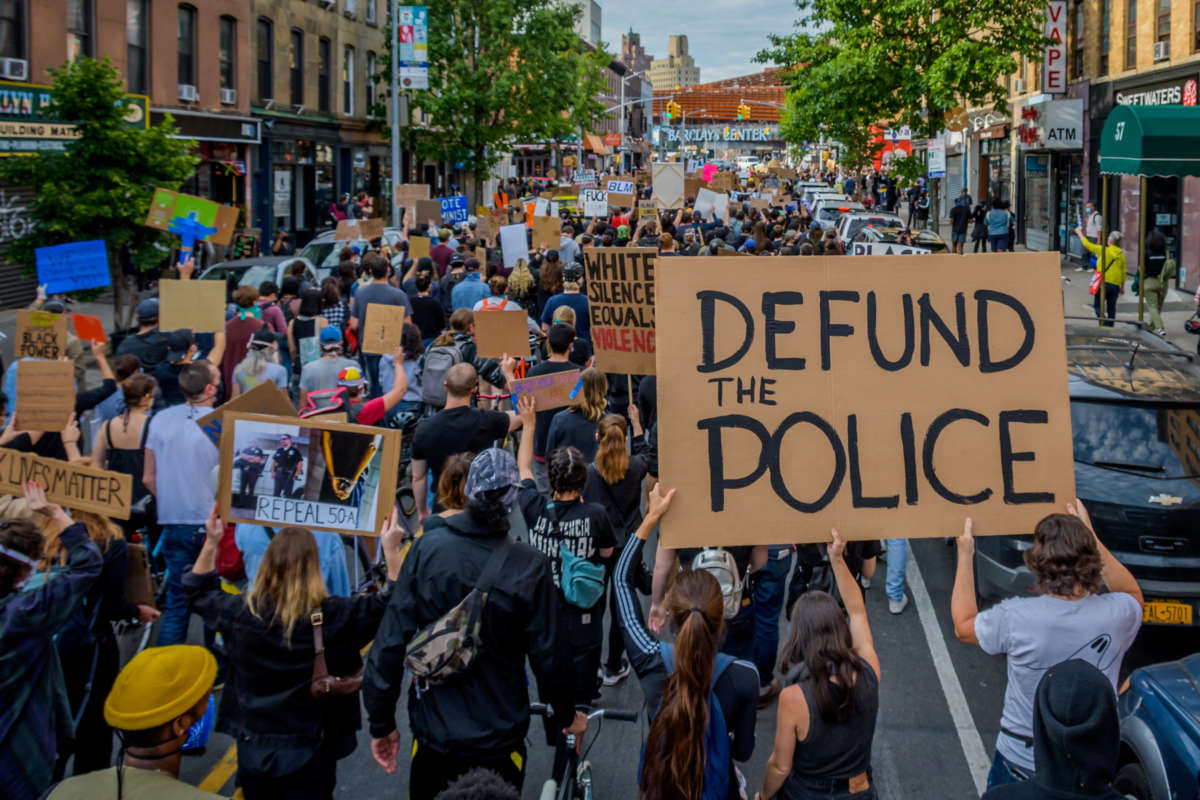Truthout is a vital news source and a living history of political struggle. If you think our work is valuable, support us with a donation of any size.
A new poll demonstrates that a majority of Americans view the killing of George Floyd last week as indicative of systemic racism in policing toward Black Americans.
Floyd was killed when a Minneapolis police officer kneeled on his neck for almost nine minutes, after having already handcuffed Floyd and placed him on the ground. The release of video of the killing has been followed by numerous demonstrations across the country for over a week.
According to an ABC News/Ipsos poll conducted on June 3 and 4, only 26 percent of respondents viewed Floyd’s killing as an isolated incident. Conversely, 74 percent of Americans believe Floyd’s death is indicative of broader problems involving policing of Black people.
The sentiment is shared across a broad spectrum of the U.S. populace, the poll found. Among Black Americans, 94 percent see Floyd’s death as a sign of a systemic problem in policing. Seventy percent of white respondents agreed.
Both sides of the political divide also appeared to understand that racial disparities in policing practices across the country are a problem. Fifty-five percent of Republican respondents in the poll said that Floyd’s killing indicated such problems are apparent, while 92 percent of Democrats agreed.
The numbers from this poll are a dramatic shift from how much of the country viewed similar killings just six years ago. In 2014, when an ABC News/Washington Post poll asked the same question, only 43 percent said the deaths of Michael Brown, Eric Garner, and others were signs of a larger problem in policing toward Black people, while a majority, 51 percent, said those incidents were isolated.
Other recent polling demonstrates that most Americans are receptive to changes and reforms in policing. When it comes to how most in the country view the uprisings in several cities across the U.S., for example, 54 percent say they strongly support or at least somewhat support them, while only 22 percent indicated they opposed the demonstrations.
The more recent ABC News/Ipsos poll from this week also found that Americans were not happy with how President Donald Trump has handled himself in the wake of Floyd’s death and nationwide protests, with 66 percent saying they disapproved of how he’s reacted, and only 32 percent saying they approve of his actions.
Trump has been criticized for his militaristic response to demonstrators, including the tear-gassing of participants earlier this week at a peaceful protest outside the White House to clear a path for him to walk to a nearby church for a photo-op.
The Trump administration denied that chemical agents were used, but local news agencies found empty tear gas canisters in the park where demonstrators had gathered.
A terrifying moment. We appeal for your support.
In the last weeks, we have witnessed an authoritarian assault on communities in Minnesota and across the nation.
The need for truthful, grassroots reporting is urgent at this cataclysmic historical moment. Yet, Trump-aligned billionaires and other allies have taken over many legacy media outlets — the culmination of a decades-long campaign to place control of the narrative into the hands of the political right.
We refuse to let Trump’s blatant propaganda machine go unchecked. Untethered to corporate ownership or advertisers, Truthout remains fearless in our reporting and our determination to use journalism as a tool for justice.
But we need your help just to fund our basic expenses. Over 80 percent of Truthout’s funding comes from small individual donations from our community of readers, and over a third of our total budget is supported by recurring monthly donors.
Truthout has launched a fundraiser to add 460 new monthly donors in the next 8 days. Whether you can make a small monthly donation or a larger one-time gift, Truthout only works with your support.
